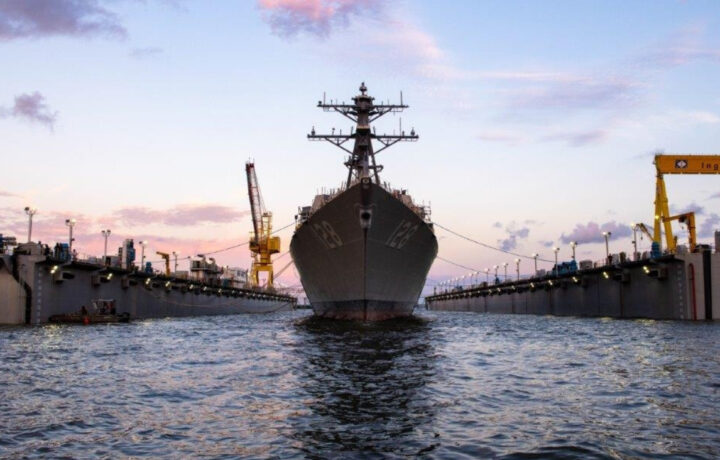In the 19th century, “gunboat diplomacy” was a foreign policy tactic that used the display of military power, most notably naval fleets, to intimidate a foreign government into cooperating on a nation’s terms. The United States engaged in such actions in the Caribbean in the late 19th and early 20th centuries to coerce Caribbean nations into accepting U.S. foreign policy objectives.
Under President Theodore Roosevelt, and the “Roosevelt Corollary” of 1904, there was the assertion that Washington had a right to act, and was even duty-bound to do so, to intervene in Latin America if countries were involved in “flagrant cases of wrongdoing or impotence.” While the primary goal of the Corollary was to prevent European intervention in the Western Hemisphere, and was thus an extension of the Monroe Doctrine, it also allowed the U.S. to have the right to act as a de facto “international police power” in the region.
To some observers, gunboat diplomacy is alive and well in the 21st century, as the United States Navy deployed three Arleigh Burke-class Aegis guided-missile destroyers to the waters off Venezuela. The warships, along with thousands of United States Marines, are part of the White House efforts to combat South America’s drug cartels.
The Trump administration had stated that President Nicolás Maduro’s regime is not the legitimate government of Venezuela, and accused it of being a “narco-terror cartel.” Maduro was indicted in absentia in New York in 2020 on narco-terrorism and cocaine importation conspiracy charges.
Maduro’s government has the support of Russia, China, and Cuba, and retains close relations with Iran. Washington and Caracas broke off formal bilateral diplomatic relations in 2019 during Trump’s first term. The U.S. government has not recognized the last two elections, in which Maduro claimed victory.
Combat Hardened Warship
Among the warships deployed to the region was the USS Gravely (DDG-107), a Flight IIA upgraded variant that had previously operated in the Red Sea to counter drones and missiles fired by the Iranian-backed Houthi militants in Yemen at commercial shipping.
“On day one of the Trump Administration, the President published an Executive Order designating drug cartels as Foreign Terrorist Organizations, clearly identifying them as a direct threat to the national security of the United States,” Chief Pentagon Spokesman Sean Parnell told reporters last week. “These cartels have engaged in historic violence and terror throughout our Hemisphere—and around the globe—that has destabilized economies and internal security of countries but also flooded the United States with deadly drugs, violent criminals, and vicious gangs.”
Venezuela Ready for “Gringo Empire”
Maduro’s government announced last week that it responded to the deployment by mobilizing 4.5 million militiamen to confront what his regime called the “Gringo Empire.”
However, researcher Carolina Jiménez Sandoval, president of the Washington Office on Latin America, told The New York Times that the volunteer force was among the “least battle-ready” of the country’s armed service. It is also unlikely that the size of the force is that strong, given that the South American nation has a population of just around 28 million. However, Jiménez Sandoval suggested that it was “a boisterous way of showing power.”
Modern Gunboats
The Arleigh Burke-class destroyers should be seen as considerably more potent than the gunboats that were sent to the region over a century ago. Each is armed with Tomahawk land-attack cruise missiles, each capable of striking targets over 1,000 miles away. As offensive weapons, the Tomahawk can hit command centers, airfields, and other high-value assets without risking aircraft.
The Aegis Combat Systems also provide the warships with powerful defense capabilities that track targets from hundreds of miles away. The warships’ SM-3 air defense missiles can counter ballistic missile and drone threats.
No Banana War in the 21st Century
Where the situation is likely to look different from past U.S. gunboat diplomacy efforts is in putting boots on the ground. During the so-called Banana Wars that saw U.S. military actions in Cuba, Panama, Honduras, Nicaragua, Mexico, Haiti, and the Dominican Republic between 1900 and 1934 to protect U.S. commercial interests, it required the deployment of U.S. Marines and Naval Infantry.
Washington may be rattling sabers, but it doesn’t seem intent on orchestrating efforts actually to institute regime change in Venezuela. Caracas may need to do nothing, except wait out the U.S. Navy deployment.




